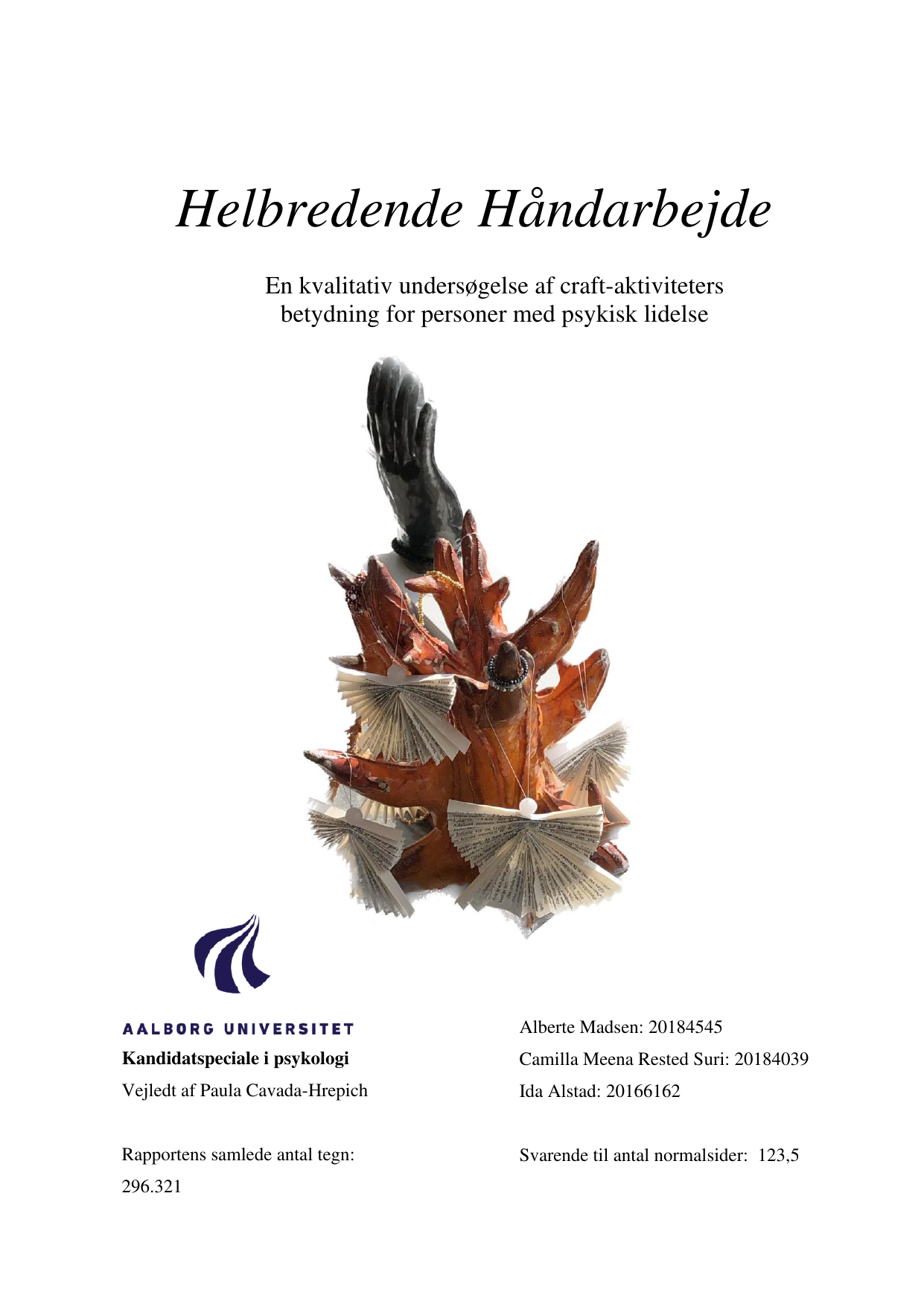
Helbredende Håndarbejde: En kvalitativ undersøgelse af craft-aktiviteters betydning for personer med psykisk lidelse
Oversat titel
Craft activities as healing: A qualitative study on the meaning of craft activities for people with mental illnesses
Forfattere
Semester
4. semester
Uddannelse
Udgivelsesår
2024
Afleveret
2024-05-30
Antal sider
123
Abstract
The academic community has shown increased interest in craft-based activities for people with mental illnesses as a way of reducing symptoms and enhancing mental well-being. Furthermore, a number of initiatives regarding these interventions are starting to emerge in Denmark. However, existing research primarily examines craft-based interventions from the perspectives of facilitators and participants’ phenomenological experiences. The research lacks the consideration of contextual factors that are crucial to participants’ subjective meaning-making process. Therefore, this master's thesis aims to fill this gap by investigating the meaning of engaging in craft-based activities for individuals with severe mental illnesses along with the contextual conditions shaping this meaning. This inquiry adopts a social constructivist methodological stance, employing qualitative methods such as participant observation and semi-structured interviews. Empirical data is gathered within an anonymous facility in Denmark catering to individuals with mental health conditions. Thematic analysis is applied to the empirical findings, drawing upon theoretical frameworks such as affordance theory, empowerment theory, and recognition theory, as articulated by James Gibson, Marc Zimmerman, and Axel Honneth, respectively. The key findings are synthesized into a comprehensive model, which shows the importance of contextual conditions in shaping the meaning of craft activities. These conditions involve the physical surroundings, caring relationships and the possibilities of making your own choices. These conditions contribute to the construction of different meanings by the participants, including a resourceful identity rooted in autonomy and self-confidence as well as healing and prevention. The findings ought to be interpreted in light of time limits regarding the fieldwork, the various degrees of illnesses in the population and methodical limitations precluding generalization. Furthermore, the thesis advocates for further research in the conditions allowing for a sense of community within the interventions to arise and how this potentially affects the meaning of craft-based activities. Additionally, how societal structures are influencing the construction of meaning in relation to participating in craft-based activities needs further investigation. The findings suggest the need for additional craft-based interventions tailored to vulnerable individuals, along with an emphasis on prioritizing and allocating economic resources for the supportive conditions surrounding alternative treatments. Specifically, craft-activities that enhance the personal resources of the individual.
Emneord
Craft-aktiviteter ; Håndarbejde ; Craft ; Ressourcer ; Betingelse ; Identitet ; Gibson ; Honneth ; Zimmerman ; Anerkendelse ; Empowerment ; Selvbestemmelse ; Affordance ; Handlemuligheder ; Omsorg ; Psykiatri ; Psykisk lidelse ; Mental lidelse ; Socialkonstruktivisme ; Kvalitativ
